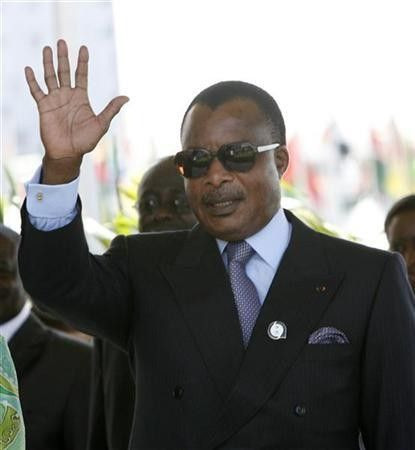Congo non-oil revenues up, crude output seen slipping

The Republic of Congo's non-crude revenues rose 25 percent to 500 billion CFA Francs in the first-half of the year, Congo's president Denis Sassou N'Guesso said on Friday, adding the economy needed to ease its reliance on an oil industry poised for decline.
"The greatest weakness of our economy, we all know, is that it is driven primarily by oil, which represent over 90 percent of exports and 85 percent of revenues," he told parliament in a state of the nation address.
"Caution requires us not to continue to put all our eggs in one oil basket, thus, the vital need to diversify our economy by rapidly expanding other areas," N'Guesso added.
N'Guesso said the government was spending 1 trillion CFA Francs for public investments this year on infrastructure and industries, which would create opportunities and diversify its economy to other sectors such as agriculture and forestry, which saw an increase in exports during the year.
N'Guesso said Congo's agro-industry sector will contribute about 9 percent to the country's economy this year. He added that the country's dozens of new investment projects would create between 27,000 and 30,000 jobs, with another 16,000 jobs expected in the mining and timber transformation sectors.
One of the few countries in sub-Saharan African with a Eurobond - a $478 million 2029 Eurobond -- authorities expect Congo's economy to grow by 6.7 percent this year, a figure revised down from 9.1 percent following a fall in oil production.
Government budget projections in October expected oil production to rise about 2 percent in 2011 to 348,000 barrels per day, while the International Monetary Fund, said it expected oil production to peak at 370,000 bpd in 2012.
"Our oil production could start to decline starting in 2012," N'Guesso said in his speech, broadcast on state television.
Congo's oilfields are operated by a dozen companies including Total, Murphy and ENI.
© Copyright Thomson Reuters 2024. All rights reserved.



















